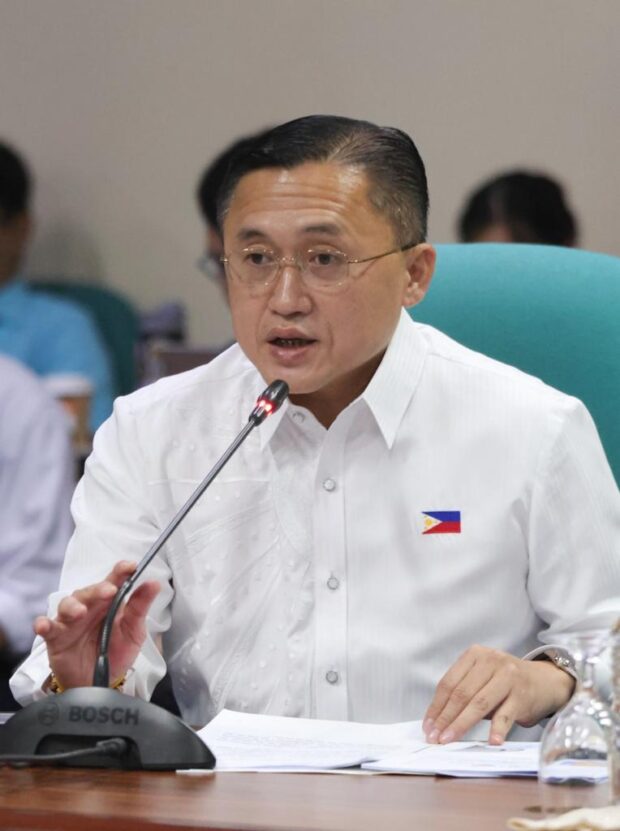Sen. Bong Go emphasizes benefits of regional specialized medical centers law

Sen. Bong Go
MANILA, Philippines – Senator Christopher “Bong” Go underscored the significance of Republic Act No. 11959, which mandates the establishment of regional medical specialty centers nationwide, aiming to enhance access to specialized medical services for Filipinos.
RA 11959, with Go as principal sponsor, was signed by President Ferdinand “Bongbong” R. Marcos, Jr. last August.
“As the principal sponsor and one of the authors of the measure together with no less than Senate President Migz Zubiri, I have long recognized the need to bring specialized medical services to more poor and indigent Filipino patients, most of them living outside Metro Manila where most, if not all, of our national specialty centers are found,” Go said in a statement.
“Proud tayo na 24-0 ang naging botohan para maipasa ito sa Senado. Lahat ng kapwa ko senador ay sumoporta dito dahil alam natin na tunay na makatutulong ito sa mahihirap,” he added.
Decentralize, decongest
The law seeks to decentralize the availability of specialized medical services, traditionally concentrated in Metro Manila, and distribute them to Department of Health (DOH) hospitals in every region.
“In doing so, we will be bringing essential specialty medical services closer to our people—particularly the hopeless, helpless, and those who have no one to turn to except the government.”
“The regional specialty centers will also help decongest our existing national specialty centers, such as the National Center for Mental Health in Mandaluyong City, the Philippine Heart Center, and the National Kidney and Transplant Institute in Quezon City,” he added.
This initiative is part of a multi-year plan, with the government planning to set up regional specialty centers across various regions within the next five years.
While there are already existing specialty centers in select major hospitals across the country, this law aims to ensure that each region has its own specialty centers tailored to meet the specific healthcare needs of the local population.
Services
These regional specialty centers will provide a wide range of services including cardiovascular care, renal care and transplant services, lung care, cancer treatment, brain and spine care, neonatal care, burn treatment, geriatric care, trauma care, eye care, mental health services, dermatological care, toxicology, an orthopedic center, physical rehabilitation medicine, and treatment for infectious diseases and tropical medicine.
For many Filipinos, especially the indigent, seeking specialized medical care often means traveling long distances to major cities like Manila, incurring significant travel and living expenses.
“Para sa isang mahirap na pasyenteng Pilipino, hindi pa nga naiisip kung paano gagaling sa sakit niya sa puso, halimbawa, problemado na sila sa kung paano makapunta ng Manila para magpagamot,” said Go.
The new law promises to alleviate these burdens by bringing medical services closer to those in need.
Funding issues
One of the concerns raised about the new law was whether it would face challenges in funding and implementation.
Addressing this, Go emphasized the importance of sustainable and adequate funding to ensure that the Regional Specialty Centers Law will be properly implemented.
“For the fiscal year 2024, Congress approved the initial P10-billion fund for the establishment of these centers in DOH hospitals.”
Go also cited that based on projections of DOH, the estimated total cost for the 2024-2028 implementation period is P76 billion, to be sourced from the annual General Appropriations Acts (GAA) and other funding sources.
In a move to ensure better financial viability, Go explained that the law mandates the establishment of these centers within existing DOH hospitals, rather than constructing new facilities.
He highlighted existing models, “In fact, there are already functional specialty centers in those hospitals, such as cardiovascular care, lung care, eye care, neonatal, trauma, cancer care, toxicology, and dermatology care inside the Southern Philippines Medical Center in Davao City, for example.”
“All we need to do is to develop, upgrade them, and bring such services to other existing regional hospitals around the country,” he added.
Reflecting on his experiences during the term of former president Rodrigo Duterte, Go conveyed his deep commitment to improving healthcare accessibility in the country.
Bringing specialized healthcare to the people
He shared stories of Filipinos who had to seek help for medical treatment and travel expenses to reach specialty hospitals in Manila, highlighting the urgent need for change.
“Kaya noong panahon ni dating pangulong Rodrigo Duterte, napakaraming lumalapit sa amin hindi lang para magpagamot, kundi humihingi rin ng pamasahe para bumiyahe papuntang Manila kasi andito yung mga specialty hospitals na kayang gumamot sa kanila,” recounted Go.
“Hindi lang naman sa Quezon City merong may sakit sa baga. Hindi lang naman sa Metro Manila mayroong may sakit sa puso. Hindi lamang sa Luzon ang may sakit sa kidney,” he added.
Go said that with the establishment of additional specialty centers in each region, Filipinos, regardless of their location across the country, will no longer face difficulties in accessing medical care.
“Ito ay isang malaking hakbang sa ating hangaring ilapit ang serbisyo medikal ng gobyerno sa tao, lalo na sa mga mahihirap nating kababayan. Tandaan natin na ang katumbas ng kalusugan ay buhay ng bawat Pilipino,” concluded Go.
RELATED STORIES
Four new laws to boost Filipinos’ welfare — Zubiri
Lapu-Lapu plans to open free dialysis center by April — Mayor Chan
Disclaimer: The comments uploaded on this site do not necessarily represent or reflect the views of management and owner of Cebudailynews. We reserve the right to exclude comments that we deem to be inconsistent with our editorial standards.
